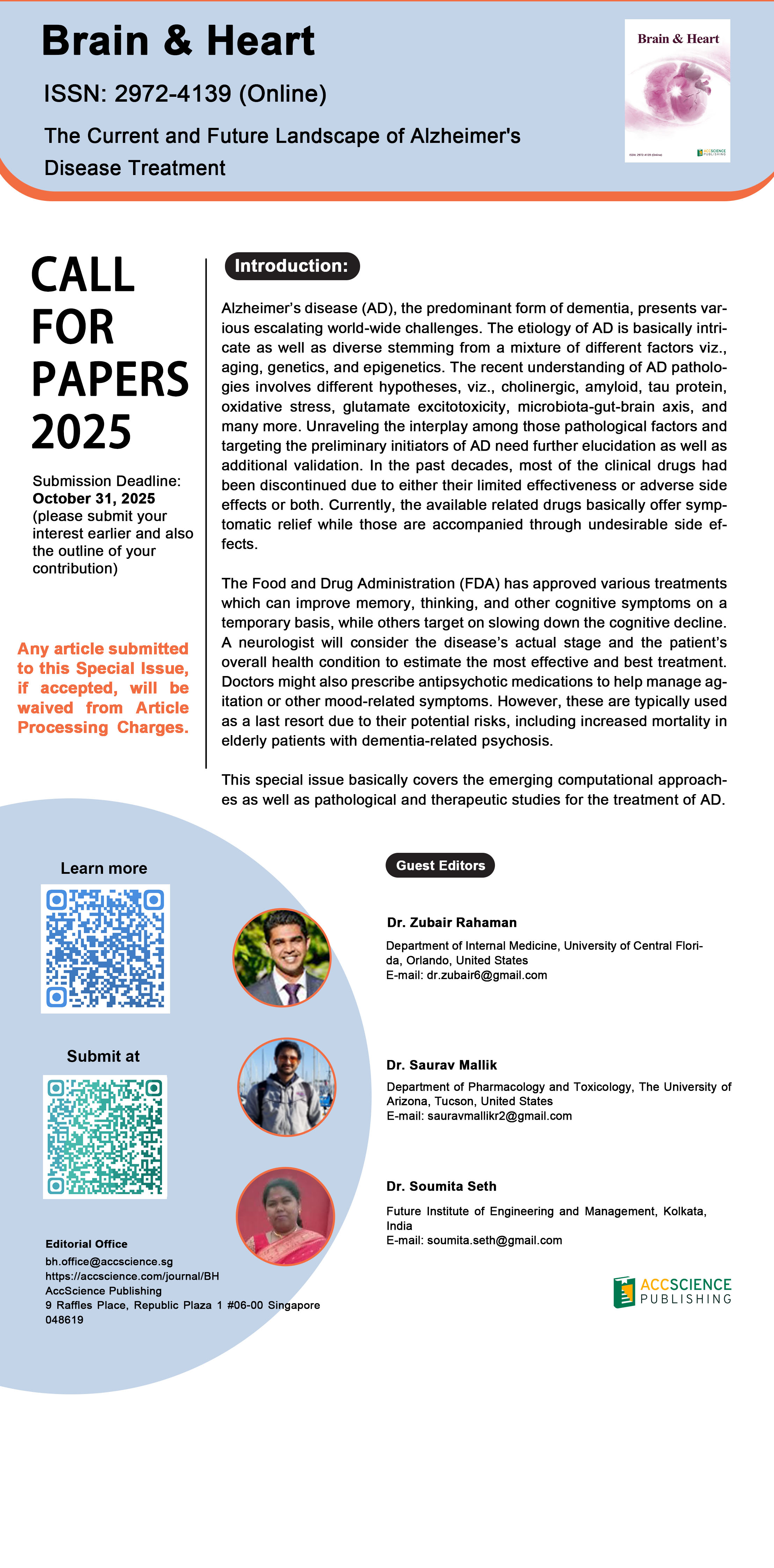
Department of Internal Medicine, University of Central Florida, Orlando, United StatesAlzheimer’s disease; Treatment advancements; Cholinesterase inhibitors; Anti-amyloid immunotherapies; FDA-approved medications; Cognitive decline; Memory loss; Neurology; Dementia care; Brain health; Neurodegeneration

Alzheimer’s disease (AD), the predominant form of dementia, presents various escalating world-wide challenges. The etiology of AD is basically intricate as well as diverse stemming from a mixture of different factors viz., aging, genetics, and epigenetics. The recent understanding of AD pathologies involves different hypotheses, viz., cholinergic, amyloid, tau protein, oxidative stress, glutamate excitotoxicity, microbiota-gut-brain axis, and many more. Unraveling the interplay among those pathological factors and targeting the preliminary initiators of AD need further elucidation as well as additional validation. In the past decades, most of the clinical drugs had been discontinued due to either their limited effectiveness or adverse side effects or both. Currently, the available related drugs basically offer symptomatic relief while those are accompanied through undesirable side effects.
The Food and Drug Administration (FDA) has approved various treatments which can improve memory, thinking, and other cognitive symptoms on a temporary basis, while others target on slowing down the cognitive decline. A neurologist will consider the disease’s actual stage and the patient’s overall health condition to estimate the most effective and best treatment. Doctors might also prescribe antipsychotic medications to help manage agitation or other mood-related symptoms. However, these are typically used as a last resort due to their potential risks, including increased mortality in elderly patients with dementia-related psychosis.
This special issue basically covers the emerging computational approaches as well as pathological and therapeutic studies for the treatment of AD.
Here are some of the potential themes for this issue:
- Therapeutic approaches (anti-amyloid immunotherapies) to AD,
- Medication/drug prescription (FDA-approved medications) for the treatment,
- Cognitive decline,
- AD pathogenesis,
- Advances in AD diagnostic biomarkers,
- AD drug development,
- Clinical trials of AD,
- Discovery of various specific inhibitors and modulators (viz., dual-target inhibitors, cholinesterase inhibitors, allosteric modulators, covalent inhibitors, proteolysis-targeting chimeras (PROTACs)).
- Finding protein-protein interaction (PPI) modulators,
- Molecular docking for AD.
- Computational approaches on AD detection for RNAseq data.
- Computational approaches on AD detection for brain imaging data.
Early prediction of Alzheimer’s disease using machine learning algorithm: A convolutional neural network approach
Phytochemicals as neurotherapeutics in Alzheimer’s disease: Exploring plant-based interventions for emerging complex brain disorders



